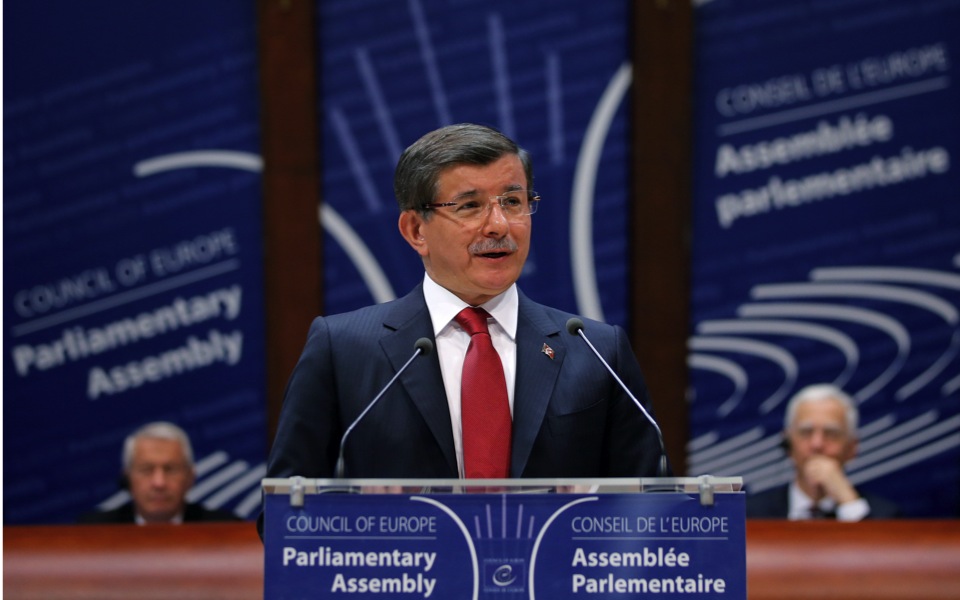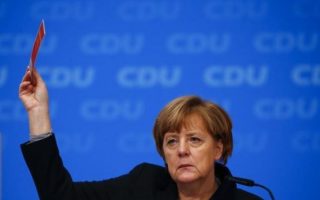Greece, Turkey and the EU

Turkish Prime Minister Ahmet Davutoglu stated the obvious when he was on his way to Brussels a couple of days ago. He said that if Brussels did not hold up its end of the EU-Turkey agreement on refugees, which involves the relaxation of visa rules for Turks by June, then “no one would expect Turkey to adhere its commitments” to stem the flow of migrants reaching Greece.
His comments enraged progressives and the guardians of so-called European values. They spoke of fresh extortion from Turkey. But the concession regarding visas is an integral part of a wider agreement that was struck thanks to the work of German Chancellor Angela Merkel.
European Commission President Jean-Claude Juncker thought it wise to stress that Turkey would not be given an easy ride. “Visa liberalization is a matter of criteria,” he said. “The criteria will not be watered down in the case of Turkey.”
In the end, logic was restored when Migration and Home Affairs Commissioner Dimitris Avramopoulos declared himself satisfied with the progress made so far.
Some humanists or nationalists in central and northern Europe can make various claims about Turkey and the leadership of its president, Recep Tayyip Erdogan. As far as Greece is concerned, though, it does not have the luxury of musing about whether an “authoritarian regime” can integrate into the European status quo.
Also, Greece must be aware that the internal crisis within Turkey, which is very real, cannot culminate in a state of affairs that will be beneficial for Athens. We only have to remember the illusions of Eleftherios Venizelos who rushed to take advantage of the collapse of the Ottoman Empire but, unfortunately, contributed to the rise of Mustafa Kemal (Ataturk) and the conditions for the ouster of Asia Minor’s Greeks.
All this would be of some historical value if some New Democracy officials would cease citing Venizelos’s “genius” and his focus on Europe, while trying to draw parallels that it would be best to avoid.
Each era has its own particularities and not taken them into account is dangerous. Merkel was correct to push for the agreement between Turkey and the EU and it was wise of Prime Minister Alexis Tsipras and his government to support this initiative. It was also correct that there should be joint patrols by NATO aimed at tackling migrant smugglers.
The fears that Turkey will make any strategic gains at Greece’s expense as a result of the NATO patrols in the Aegean is unfounded. In fact, when Greece withdrew from NATO’s military arm following the collapse of the dictatorship in 1974 this led to Turkey being seen as an even more vital defense ally by the West.
In contrast to its European partners who have the luxury to ponder over all and sundry, Greece should remember that maintaining stable relations with Turkey is of paramount interest.





